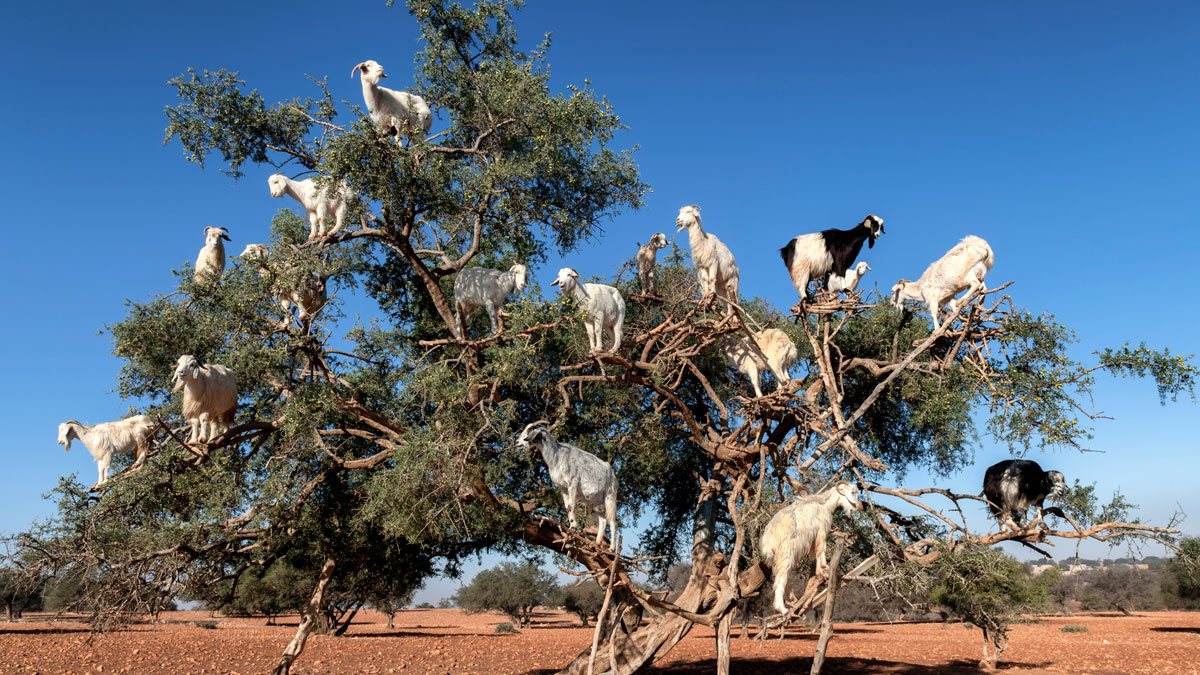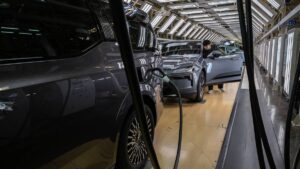CRITERION: Cracking the China nut – it’s the GOAT challenge

Picture: Getty Images
When the US sneezes economically, the rest of the world catches a cold. But when China sniffles, Australia is at risk of a full-blown bout of influenza.
Last week the China gloom amped up a notch on reports of global banks cutting their growth expectations for the tiring dragon economy, on the back of the debt-ridden property sector’s woes and a bout of – believe it or not – deflation.
In its full-year results BHP noted a post-Covid lockdown recovery in the March quarter had petered out by the June stanza, on the back of the slowdown of the steel-intensive real estate sector.
Still, China isn’t exactly going away and even the pared-down forecasts imply reasonable growth. UBS, for instance, has trimmed its current-year GDP expectation from 5.2 per cent to 4.8 per cent, abating to 4.2 per cent in 2024.
For ASX small caps doing more than shipping lumps of iron ore and coal, China success has been elusive. This was highlighted by the recent board spat at infant formula Bubs Australia (ASX:BUB), the core issue being Bubs’ relationship with its Chinese distributor and related excess inventory problems.
Undeterred, low-key rival Nuchev (ASX:NUC) is planning a renewed push in China as it expands its Oli6 brand from goat’s milk to dairy formula.
As with Bubs, Nuchev had a China distributor that wasn’t working out and its own inventory hangover of $9.4 million of raw material.
Nuchev has now signed up with a new exclusive distributor, H&S, which has also taken a 19.9 per cent stake (with a performance-linked path to 34.9 per cent).
H&S has also committed to buying and distributing a minimum $20 million of Oli6 over the initial three years, which implies a decent leg up on the $2 million of sales Nuchev managed in the June quarter.
Nuchev chief Greg Kerr points to the ability of H&S to sell via retailers including 60 cross border e-tailers.
“When you do business in China you need a clear see-through in terms of inventory levels, otherwise you risk clogging up the market in an irresponsible way,” he says.
Currently, Nuchev derives an “underwhelming” 25 per cent of its sales from China, when the balance really should be 70 per cent China and 30 per cent Australia/New Zealand.
“In 12 to 18 months we see those numbers righting themselves,” he says.
In the medical device sector, Uscom (ASX:UCM) distinguishes itself from its peers by gleaning 70 per cent of its revenue from the Middle Kingdom.
But creating a beachhead there has taken more than a decade, with more than a dozen regulatory steps involved.
“The secret is process and patience and relationships,” says Uscom chief Rob Phillips. “You need to be prepared to take time with those relationships.”
Uscom’s flagship product – the Uscom1A cardiac blood flow monitor – had been approved by Chinese authorities, but the company has been hampered by new rules requiring its products to be made in China if they are to supply the local market.
Via a partnership with precision electronics manufacturer Foxconn, Uscom is girding for re-approval.
The ‘made in China’ rule has reduced Uscom’s China revenues by more than half, but the “impending resolution” of the issue heralds a return to growth.
The company also has Chinese marketing approval for blood pressure monitor BP+ and is confident of assent for Spirosonics, which measures pulmonary function.
Uscom has a $10 million market cap (supported by $2.2 million of cash) and Nuchev is worth around $15 million (with $7.5 million cash).
These companies should be worth a lot more if they can crack that difficult – but potentially lucrative – China nut.
This story does not constitute financial product advice. You should consider obtaining independent advice before making any financial decisions.
The views, information, or opinions expressed in the interviews in this article are solely those of the interviewees and do not represent the views of Stockhead. Stockhead does not provide, endorse or otherwise assume responsibility for any financial product advice contained in this article.
.”
Related Topics
UNLOCK INSIGHTS
Discover the untold stories of emerging ASX stocks.
Daily news and expert analysis, it's free to subscribe.
By proceeding, you confirm you understand that we handle personal information in accordance with our Privacy Policy.








